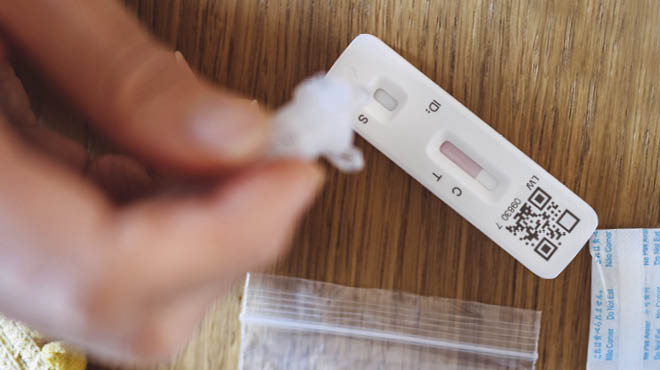Recent Posts
Dealing with 'brain fog' from long COVID-19

Long COVID-19, also known as post-COVID syndrome, involves a wide range of health problems that occur many weeks, months and years after recovering from COVID-19 infection. Sometimes, symptoms of long COVID-19 can include cognitive difficulties.
"Brain fog" has been used to describe some of these symptoms. While "brain fog" is not a medical condition, it's a term used for certain symptoms that can affect one's ability to think.
Billie Schultz, M.D., a Mayo Clinic physical medicine and rehabilitation expert, discusses what can be done to help patients experiencing "brain fog."
Short-term memory loss, confusion and difficulty concentrating are all things those suffering from "brain fog" may experience after recovering from COVID-19 infection.
"'Brain fog' is just kind of this feeling that you're trying to do something, and it's taking more effort. It's harder to do. You don't feel like you're picking up all of those details — almost as if you're driving through a fog," says Dr. Schultz.
While there's no one-size-fits-all treatment that can cure these cognitive difficulties, some rehabilitation strategies can retrain the brain to work on the areas that are most challenging.
"Typically, it means going into work with a therapist initially once or twice over the course of a month. And getting homework. 'I want you to try to utilize these strategies in your day-to-day life.' Because, ultimately, that's what decides if they're working."
Dr. Schultz stresses that people should address any cognitive symptoms that affect their day-to-day life, regardless of whether those symptoms are related to long COVID-19.
"The most important thing you can do as a patient is to share honestly with your providers what you're experiencing," says Dr. Schultz.
Other post-COVID syndrome signs and symptoms include:
- Blood clots and blood vessel problems
- Chest pain
- Cough
- Depression or anxiety
- Dizziness when you stand
- Fast or pounding heartbeat
- Fatigue
- Fever
- Joint pain
- Loss of smell or taste
- Memory, concentration or sleep problems
- Muscle pain or headache
- Organ damage, such as damage to the lungs, heart, kidney and brain
- Shortness of breath or difficulty breathing
- Worsened symptoms after physical or mental activities
Information in this post was accurate at the time of its posting. Due to the fluid nature of the COVID-19 pandemic, scientific understanding, along with guidelines and recommendations, may have changed since the original publication date.





